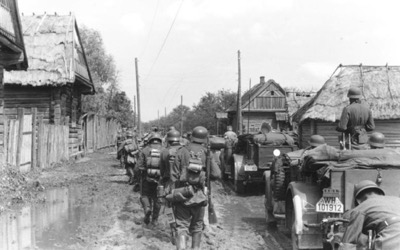
On 14 December 2021, the Belarusian Parliament approved a bill recognizing the genocide of Belarusian people by the Nazis.
During World War II, the Nazis carried out 140 punitive operations throughout Belarus, razing over 200 towns and 9,000 villages. They set up 250 concentration camps for captured Soviet soldiers and 350 for civilians. 206,500 people perished in the largest of these camps alone. Overall, a third of the population at the time was killed by the Nazis (2.5 to 3 million people).
The victims comprised Belorusians as well as Jews, Russians, Tatars and Ukrainians. The Nazi plan was to Germanize this Lebensraum, or “living space”, by introducing Aryans and regarding the local populations as “wild Indians”.
Several Israeli figures immediately objected to the recognition, considering that the Belarusians were killed for belonging to the resistance and that only the Jews were victims of a planned extermination. They are unfamiliar with the history of the Second World War in Eastern Europe and confound it with the Western European experience.
In Belarus, unlike Western Europe, the objective was not to target the Jews as such and to spare the rest of the population, but to kill indiscriminately all those who got in the way of the plan. In Mein Kampf, Adolf Hitler does not announce his intention to eliminate the Jews living in the West, but quite clearly to exterminate a large part of the East Slavic populations located in what he considers to be a "living space" for the Aryans.
This law is the first response to European Parliament resolutions and to Baltic and Ukrainian laws mixing Nazi and Soviet crimes.

















Stay In Touch
Follow us on social networks
Subscribe to weekly newsletter